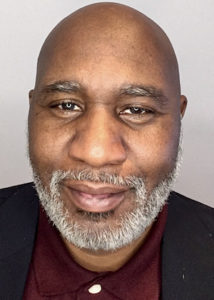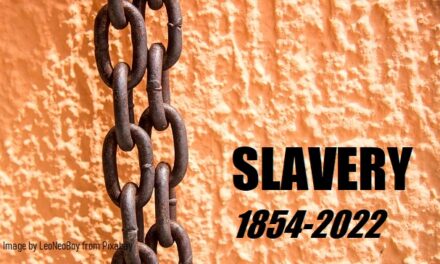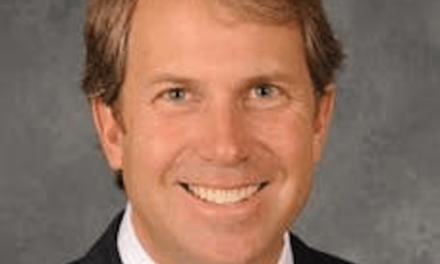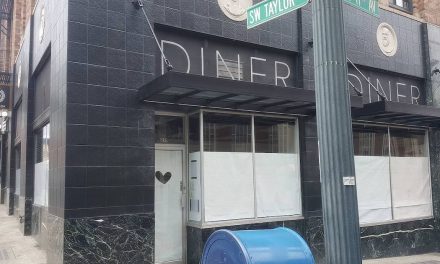LTP News Sharing:
As another Martin Luther King Jr. Day holiday approaches, our nation has much to celebrate as we strive toward King’s dream of a colorblind society.

Christopher Arps
Since his assassination in 1968, our nation has elected and re-elected its first African-American president. We’ve also sworn in our first African-American woman as associate Supreme Court justice, who joins fellow African-American Clarence Thomas on the nation’s highest court.
There are now African-American billionaire entrepreneurs and African Americans who have reached the pinnacle of the business world as CEOs of Fortune 500 companies. The substantial progress many African Americans have made since the 1960s civil rights era is genuinely momentous and should be celebrated.
Unfortunately, not every member of the African-American community, especially those living in impoverished and underserved areas, has experienced the upward mobility many of their Black brothers and sisters have enjoyed.
According to a CNN article, “The typical Black American family is virtually no closer to equal footing with its white peers in terms of income and wealth than it was 50 years ago.”
The bipartisan Joint Economic Committee, which consists of Republicans and Democrats from the Senate and House, released a study in 2020 titled “The Economic State of Black America in 2020.” The study found some troubling statistics.
The typical Black household earns a fraction of white families — just 59 cents for every dollar. The gap between Black and white annual household incomes is about $29,000 per year.
The median wealth of Black families ($17,000) — is less than one-tenth that of white families ($171,000).
Black Americans are more than twice as likely to live in poverty as white Americans.
Black children are three times as likely to live in poverty as white children.
The wealth gap between Black and white households increases with education.
The Democratic Party traditionally has relied upon African Americans for loyal and consistent votes. They typically vote 90% to 96% for the Democratic choice on the ballot. But we witnessed a significant change in that pattern, starting with the election of Donald Trump in 2016. Trump received a whopping 20% of the African-American male vote in 2020, and he also increased his vote percentage with African-American women. This trend was not just an anomaly for Trump. Other Republican officeholders also made gains. The most striking was in Georgia.
The Associated Press’ AP VoteCast performed an extensive national survey of the electorate after the 2020 midterms, and what it found should be cause for alarm for the Democratic Party.
AP found that Republican candidates were backed by 14% of African-American voters. In the 2018 midterm elections, Republicans only won 8% of the Black vote. In Georgia, Gov. Brian Kemp more than doubled his percentage of the African-American vote, increasing to 12% from 5% just four years earlier.
There are two reasons for the exodus of African-American voters from the Democratic Party: quality education and inadequate schools; and the rising crime rate disproportionately affects inner-city communities.
The COVID pandemic opened the eyes of many parents to the “wokeness” their children were being taught in their schools, and because of that, more Black families turned to homeschooling during the pandemic.
As ABC News reported: “Census shows the proportion of Black families homeschooling recently quintupled. Homeschooling, once a relatively niche form of education that has been growing steadily in the past decades, has seen a big uptick due to the COVID-19 pandemic with Black families adopting the practice at a notably high rate.”
Violent crime is at levels we haven’t seen since the 1970s. FBI statistics show a significant spike in crime (a 30% increase in violent crime in 2020 compared to the previous year) occurred after the George Floyd murder in 2020. That was the largest single-year increase since the FBI started tracking those numbers in the 1960s.
Education and crime are universal concerns that appeal to every voter. Most voters don’t want to be pandered to with insulting, shop-worn campaign tactics supposedly geared toward them. The political party or movement that understands this and plans accordingly will make further inroads with voting blocs with whom they have traditionally not done well.
Christopher Arps is a member of the Project 21 black leadership network and a managing partner with the public affairs and communications consulting firm Red Tail Strategies. This was originally syndicated through InsideSources.com.
Project 21 commentaries reflect the views of their authors and not necessarily those of other Project 21 members or the National Center for Public Policy Research, its board or staff.
Author: The National Center







